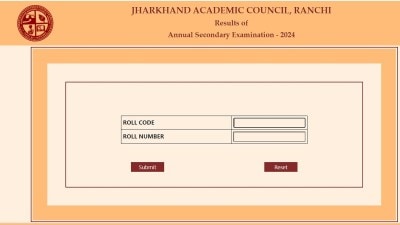- India
- International
Put the scissors away
If promoting obscurantism is a concern, TV is far more guilty than films.
 If promoting obscurantism and superstition is a concern, as it appears to have been for the CBFC when it banned ‘MSG’, then television is doing far more damage than films.
If promoting obscurantism and superstition is a concern, as it appears to have been for the CBFC when it banned ‘MSG’, then television is doing far more damage than films.
Move over Ranbir Kapoor. The rockstar-godman has arrived. The film, MSG: The Messenger, reportedly trumped Ranbir Kapoor’s Roy at the box office. Only last month, the Central Board of Film Certification (CBFC) had refused MSG clearance on the grounds that the film promoted obscurantism. It was released on clearance by the appellate tribunal, after a few cuts, and is reported to have opened to staggering box office collections. Was the CBFC, whose members resigned in a huff soon after their decision was upset in the appeal, right in prescribing a blanket ban on the film? In a country where godmen and godwomen abound on national television, prescribing remedies as ridiculous as eating paani poori to be rid of worldly woes, perhaps not.
The film, originally titled MSG: Messenger of God, features the over-the-hill, outlandishly outfitted rockstar-godman, Ram Rahim of Dera Sacha Sauda, who performs astounding stunts and conquers all evil, from prostitution to drugs. An exhibition of crude narcissism masqueraded as godliness, the film is more tragicomedy than a message from god. But that’s not reason enough to ban the film. The Cinematograph Act, 1952, requires films to be certified by the CBFC before they can be released for public exhibition. The guidelines for recommending cuts or denying certification are in line with the grounds on which the fundamental right to free speech, under Article 19(1)(a) of the Constitution, can be regulated.
Restrictions on free speech can be justified only by the reasons spelt out in Article 19(2), namely, “in the interests of sovereignty and integrity of India, the security of the state, friendly relations with foreign states, public order, decency or morality or in relation to contempt of court, defamation, or incitement of an offence”. On which of these grounds could the ban on MSG have been justified? Morality? But morality is itself a nebulous notion. A constitutional protection for the freedom of speech and expression is that the restrictions under Article 19(2) must be “reasonable”. The expression “reasonable”, appearing in Article 19(2), has been judicially interpreted to mean restrictions that are minimal, only to the extent absolutely necessary and proportionate to the purpose of the restriction. Given these constitutional tests, it is hard to justify a complete, nationwide ban on the film as the CBFC directed. The appellate tribunal’s order reversing the CBFC ban and permitting the film to be released with a 60-second disclaimer at the start and end, coupled with the deletion of a few scenes where the protagonist proclaims he is god, is a more reasonable approach.
If promoting obscurantism and superstition is a concern, as it appears to have been for the CBFC when it banned MSG, then television is doing far more damage than films. It has spawned a whole industry of godmen, feeding 24×7 on gullible audiences. One godman, ensconced on a mock throne, prescribes gastronomical solutions for wideranging worldly worries and charges a few thousand rupees to every entrant paying obeisance at his “durbar”. One devotee sued him when he got severe indigestion after following his prescription of a daily dose of kheer. But the baba is unfazed and it’s business as usual on television. An Indian audience goes to the theatres to watch a film in anticipation of a fantasy. While watching a film, there is willing suspension of disbelief. While watching television at home, it is not quite so. People are likely to shrug off MSG and his supernatural stunts as being in the realm of fantasy. A television audience is likely to be less discerning. The Programme Code under the Cable Television Networks (Regulation) Rules, 1994, proscribes shows that encourage “superstition and blind belief”. It is worth examining why these provisions have not been invoked by the ministry of information and broadcasting for all these years.
As for the argument that MSG was provocative and could spark off a law and order problem, the solution cannot be to ban the film. The threat to law and order has to be a very serious one, not the usual bluster of a handful of miscreants shouting slogans, tearing down posters or disrupting screenings. It is the state’s duty to uphold law and order and prevent goons from having a field day, not to throw up its hands in helpless inertia.

As a footnote, it is worth mentioning that the CBFC was once called the Censor Board. By an amendment to the Cinematograph Act made in 1981, the name was changed to the Central Board of Film Certification. The purpose of the amendment was to lean towards granting certification rather than censoring films. While the CBFC’s concerns may have been justified, the blanket ban was excessive. The CBFC’s scissors can snip only within the confines of Article 19(2). The freedom of expression entails the right to make films, both good and bad. How good or how bad must be left not to the judgement of the censors but to that of the audience.
The writer is an advocate practicing in the Supreme Court of India and is author of ‘Facets of Media Law’
express@expressindia.com
EXPRESS OPINION
More Explained
Apr 19: Latest News
- 01
- 02
- 03
- 04
- 05









































